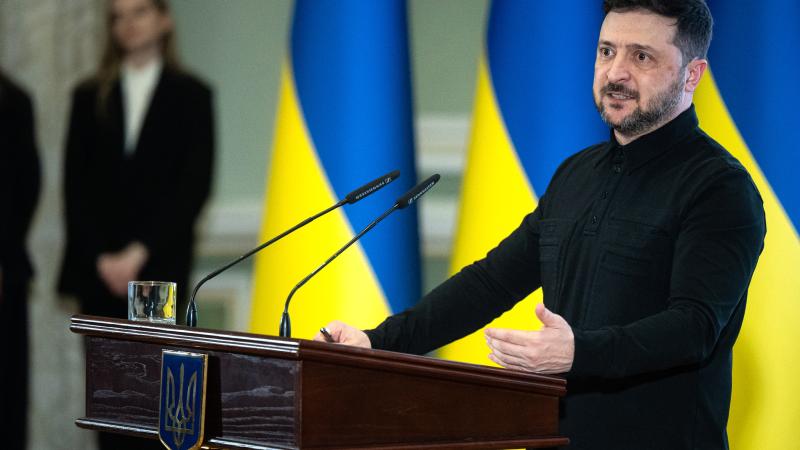U.S. nears deal to limit Iran's nuclear program, in exchange for prisoners, sanction relief
The new agreement comes after the collapse of negotiations between the U.S. and Iran to restore the Obama-era nuclear deal.
The Biden administration is close to reaching an informal deal with Iran that reportedly limits the Islamic Republic's nuclear program in exchange for freeing Americans imprisoned and easing sanctions.
Three senior Israeli officials, a U.S. official, and an Iranian official confirmed the negotiations and broad outlines of the talks to The New York Times.
The United States' goal is purportedly to come to an informal, unwritten agreement with Iran to prevent hostile relations between the two nations from further escalating – as Iran cracks down on internal protesters, stockpiles highly enriched uranium, and gives drones to Russia to use in Ukraine. The deal would also ease sanctions on Iran.
Two Israeli officials said the new pact is "imminent." Some Israeli officials are troubled by the talks and say such a deal could reduce economic pressure on Iran from the West and lead to a nuclear agreement, throwing a lifeline to the Islamic Republic's economy without stopping its nuclear activities.
On Thursday, House Foreign Affairs Chairman Michael McCaul sent a letter to President Biden raising concerns about whether his administration intends to "follow the law and submit any agreement with Iran to Congress, as required by the Iran Nuclear Agreement Review Act of 2015.”
Iran is close to producing uranium that could be used in bombs, but how close remains unclear.
In March, Chairman of the Joint Chiefs of Staff Gen. Mark Milley told a House committee that Iran could produce enough fissile material for a nuclear bomb in “less than two weeks” and could produce a nuclear weapon in “several more months,” according to Voice of America.
Earlier this month, Iran unveiled a hypersonic ballistic missile, which it touted in Tehran with a giant billboard featuring a photo of the weapon and the phrase, "400 seconds to Tel Aviv" written in Persian, Arabic and Hebrew.
The new agreement comes after the collapse of negotiations between the U.S. and Iran to restore the Obama-era nuclear deal. However, the new agreement is not considered a replacement deal.
The Times pointed to a waiver, with certain restrictions, granted last week to Iraq by the administration allowing it to pay $2.76 billion in debts to Iran for energy, which “could be a sign of a developing agreement.”
The pact would also reportedly require Iran to stop lethal attacks on U.S. contractors in Syria and Iraq from its regional proxies, to expand its cooperation with nuclear inspections and to avoid selling Russia ballistic missiles, Iranian officials told the Times.
In return, the U.S. would refrain from tightening economic sanctions on Iran, would not seize oil tankers and, would not seek new United Nations or the International Atomic Energy Agency resolutions punishing Iran over its nuclear activity.
Madeleine Hubbard is an international correspondent for Just the News. Follow her on Twitter or Instagram.
















